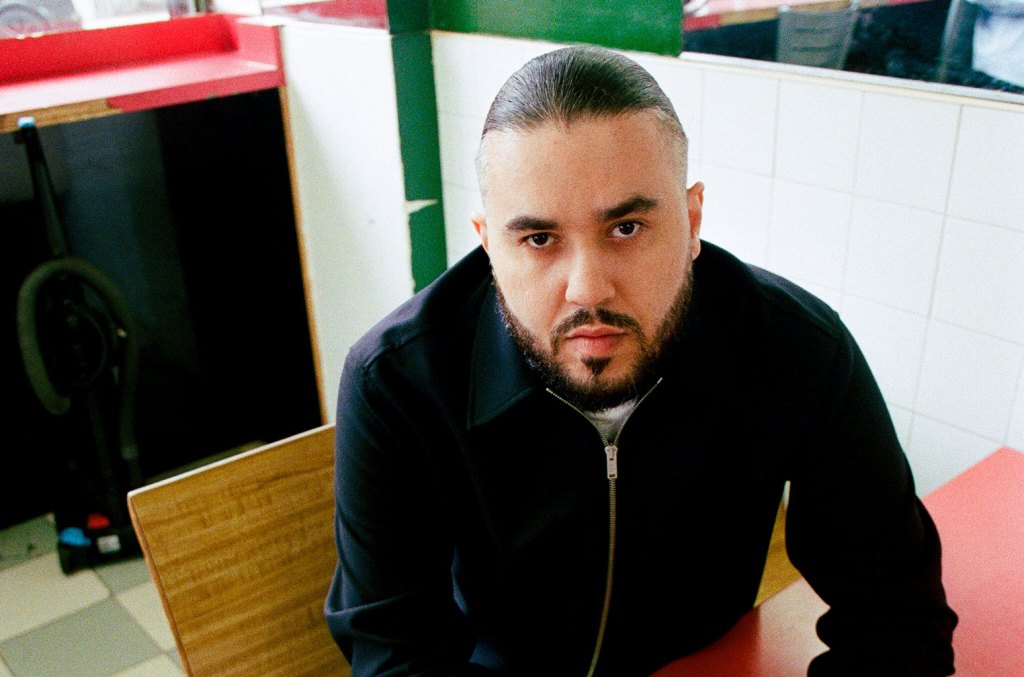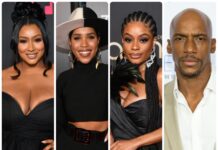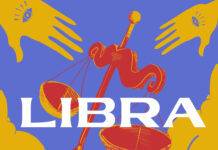There’s not many Ukrainian Jewish people walking around Brooklyn that can be taken seriously when it comes to carving out a legitimate rap career.
Your Old Droog — Droog means close friend in Russian — has repeatedly defied the odds to get to this point a decade into his career as an independent artist, which finds him still dishing out boom-bap raps and catering to a lane that’s a dying breed as far as mainstream hip-hop goes.
Do a quick Google search for Droog (born Dmitry Kutsenko) interviews, and you’ll notice there aren’t many since he made waves on the scene about a decade ago — when rap fans ran with a conspiracy theory he was actually Nas undercover.
The early days of preumss caused him to lose faith in the media — but he’s willing to give it another shot in support of his latest alb Movie, which arrived on June 21.
“I got tired of journalists twisting my words,” he tells Billboard. “I got PTSD from early on in my career where you think you’re having a good conversation with somebody and the article comes out, ‘Your Old Droog is still not Nas!’”
Growing up, whenever Droog would see a supernatural stunt in a film, his parents would reply in Russian, “Movie!” He bottled that energy up to get his Martin Scorsese on and direct his own blockbuster with this album.
The 35-year-old has compiled quite the Rolodex of collaborators over his career, as he connects on this album with producers like king of the underground Madlib, Conductor Williams and the legendary Roc-A-Fella orchestrator Just Blaze. Yasiin Bey and Method Man also pop up as special guests for lyrical sparring sessions throughout the 47-minute expedition.
Check out our interview below with Your Old Droog, as he speaks on his definition of success, working with Madlib and the idea of celebrity in America.
Who are some of your favorite storytellers — whether they be directors, rappers?
Scarface as far as rapping goes — Slick Rick. As far as movies go, Martin Scorsese, Quentin Tarantino, Brian De Palma — all the greats. A nobody could tell a great story. Just like an average person.
How do you measure success for your album? What metrics are you using?
Personally, I try not to get too caught up in the metrics, because you could go crazy. Comparison is the thief of joy. I don’t think numbers always tell the full story. I am successful when I made the album, or even before I did. The definition of success — I was listening to a self-help thing, it’s the progressive realization of a worthy ideal. I think I’m doing that.
Do you feel like you’re preserving an old-guard in rap and a part of rap that isn’t pushed in mainstream as much?
Not at all. I don’t think I’m championing an old sound or old aesthetic. I still rap the same way on the rap I grew up on. In that sense, maybe I’m preserving what I appreciate about hip-hop. What raised me. But I don’t set out to be like, “Yo, we’re bringing 2003 back!” When I came out they were calling me a “’90s revivalist.” I appreciate ’90s music, but I was a child. I wasn’t knee-deep into hip-hop yet. Early 2000s was more my era.
Right — and the whole thing that came out saying you were Nas ghostwriting that EP.
You know journalists, they rehash talking points and it sounds cool. ’90s rap! Like I remember when Joey Bada$$ came out, the aesthetic was a little ’90s. I don’t think my aesthetic was ever ’90s. A lot of it has to do with maybe that’s one of the more recent times New York rap was at the forefront. The heyday and golden era so to speak. So that’s what people tend to point to.
You said Kendrick Lamar being the top rapper gives you hope for storytelling lyricism. Seeing his run that he’s been on, does that inspire you?
It was a little complicated, because I’m trying to release music and dudes are dropping diss tracks back-to-back. So we gotta kinda wait this out, but those guys are heavyweights in the game so you gotta give them that respect. I think it’s good for the cultural, period, as long as it doesn’t spill out in the street. At the end of the day, these guys are using words and it’s good for lyricism.
How did you link up with Mos Def on “Care Free?” I loved [that] you said, “I got a free verse like Ye in ’03.” That was funny.
I heard through a few people he was a fan of mine. We ended up meeting when he had a show at Brooklyn Steel a few years ago. We met and he was showing me love that I almost forgot to fan out myself. A business partner passed my number to him and I get this weird text from an international number and lo and behold it’s Yasiin. Just understanding my story and my side of Brooklyn and being Ukrainian, that’s something he appreciates. Just a great dude.
How was working with Madlib and Conductor on this album if you could compare and contrast those experiences?
Both excellent producers. Madlib is a crazy legend and Conductor is still coming up. He’s killing it, but Madlib is near the father of this underground. They’re both similar and easy to work with. They understand what I should be lending vocals to. They understand my voice and my writing. There’s really not too much to talk about, since they know what to send over.
Working with Just Blaze harkens back to what we were talking about with the early 2000s era.
Yeah, that’s the era I’m bringing back. [Laughs.] Just, I’ve known him for a while. I always wanted to rhyme over a Just Blaze beat. That’s something we did coming up. It’s something else to have a Just Blaze beat. He doesn’t really talk on records like that and he did the vocals on the interlude.
On “Success & Power,” you said, “Don’t talk about Jews, that’s how Ye screwed up.” As a Jewish person, what’s your relationship with Ye’s music and has it changed?
I always had a love and hate. I didn’t love everything he did musically. Just to see him unravel in the public was really sad. To me, that was wordplay and a spin on his line. I like to have fun and not take myself too seriously, but I think there’s a lot of truth in that line too. He’s talented, but in recent years I guess I stopped caring [about his music]. I respect the line about the bleached a–hole. Musically, he’s a genius.
You had an interview in skits on your album. I feel like you haven’t done much press for recent albums. Was that intentional?
There came a point I realized I didn’t need to do press. If you get it you understand it and that’s fine. I had no hope in the journalistic profession as far as hip-hop. I don’t think there was a good landscape at the time. I was like, “I’m gonna make music for myself and my supporters.” There were writers that did it get it too, though.
My favorite record that I related to was “Grandmother’s Lessons.” Talk about your relationship with your grandma.
If you go through my music, I always mention my grandmothers. That’s a different type of love, if you’re fortunate enough to experience it. That’s like a mother on steroids. When I wrote it, I wasn’t even thinking about who else might like it. It’s just a song that I needed to write. That was enough for me. To get the feedback that I’ve been receiving, people are hitting me up telling me they shed tears to that song or their grandma is alive and they’re appreciating her more. That’s probably the best feedback you could ask for.
“Crescent Moon” has a ton of NBA references. Talk about your relationship with hoops growing up and meeting Dirk Nowitzki.
That was dope. When he tells me “all the best,” I take it literally. That’s Dirk. He’s cool as hell. I’m a Dallas Mavericks fan. Growing up, you dream of doing it professionally until you realize you’re not good enough or you smoking too much weed and you can’t really play ball like that. Basketball is life for me. When the playoffs are on, I can barely do anything else. It’s a big part of my life. I rap about whatever I’m interested in. Something in the back of my mind — any trivia or any basketball player type of thing. My high school didn’t have a basketball team. We just smoked marijuana, cut class and things of that nature.
How did you become a Dallas Mavericks fan? What did you think of the run to the NBA Finals this year? That was pretty special for it all to click.
I told Dirk the same thing. It was 2006 in the Finals and I kinda thought they got jerked by the refs. Part of me wanted to see them comeback and win. It took five years for them to get back and I just stayed on the bandwagon after that. Nobody expected them to go this far [this season]. I can’t be as upset as I was in 2006. It’s a different type of feeling and a different team. I’m excited for the future.
Why did you sample that Jay-Z interview?
I feel like the placement of it was important because it’s right before “How Do You Do It?” That story that I tell on that song is so uniquely mind that I feel like nobody else could write it. That’s the sentiment I got from his quote. I want to do something that a Ukrainian Jewish immigrant could talk about.
Just trying to fit this mold — like preserving the value of something, but you don’t have to dress up a certain era. You could pay homage in the right way. It doesn’t have to be readily apparent to people. You don’t have to throw hoodies on and hang out with [Olde English] 40s.
You’re not gonna get the jeans out with all the NBA teams on them.
Nah, not even the Denver Nugget jeans on. My son got the drip. I grew up during that time. Usually when I see people paying [homage] to it, they’re nostalgic for an era they didn’t live in. I was around for that time. It wasn’t that great. Let’s move on.
I read your Variety interview and you were like, “How’d we go from having celebrities like Sammy Davis Jr. to Khloe Kardashian?” What do you think about the evolution of celebrity?
I don’t even know what it means anymore. Everybody’s a star. And I’m not s–tting on her. The dude could just be super poppin’. I didn’t know who Mr. Beast was. I think it was harder to be famous and you were famous for a real reason in those days. Sammy Davis Jr. is a legend. I think I watched a documentary and that stuck out in my mind. Following his work and talk show appearances, there’s never gonna be a person like that in American pop culture. Reality TV became a thing, I understand how things play out.
Going off that within rap, I feel like the young generation’s stars aren’t as big compared to when we were growing up with Jay-Z, Eminem, Kanye West. Do you see that the same with the landscape of rap?
I think that goes back to the point I had about media. Certain things aren’t in place for there to be stars. No disrespect to the interviewers, I see flyers where the interviewer’s name is bigger than the artist and that doesn’t even make sense. These people are building their brands at the same time. You have journalists who want to be rappers. If the guy covering you wants to be famous, where does that leave you? They don’t have a stake in it. It’s a free-for-all.
What does it even mean to be a rap star these days? You saw what happened to Pop Smoke. People don’t want to see you do well, it’s sad. Do you even want to be a star on that level? Do you want what comes with that?
Jim Jones always says rappers have the most dangerous job in America.
Dudes is hating on you before you even make it, so imagine when you are that guy. People are literally seething.
What’s your advice for upcoming independent artists in how they can navigate the business?
Everybody’s not cut out to be an independent artist, but some of us are left with no choice. You gotta just go for it. You gotta release the music. You gotta be strategic too. You gotta understand where you’re at in your career, and where you’re tryna go. I think independent is the way to move. I work best without somebody standing over me telling me what to do. I got into this profession so I wouldn’t have to work, so I’m definitely not doing that. Maybe some people like being told what to do, but I don’t think you need to get in the music game [for that]. You could just go to McDonald’s.
Source link









